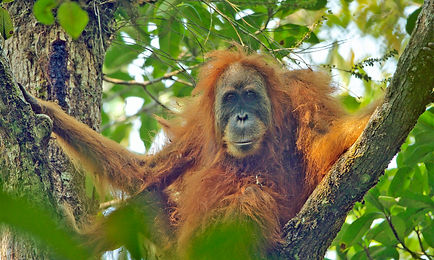

CONSERVATION WORK
An alliance of researchers, policy makers, journalists, wildlife photographers and artists across the globe
Efforts
CONSERVATION POLICY
We work with policymakers at state and national levels of the United States Government to promote our values, and are regularly involved in collaborative efforts to support legislation that complements our interspecies coexistence.
HABITAT CONSERVATION
With human societal encroachment affecting all eight bear species directly and frequently posing a direct threat to ecosystem balance, we hope to reverse the trend by supporting public lands and wilderness protection.
RESEARCH &
GRANT POLICY
Any dollar contribution that Bear Trust provides to a collaborative project must be spent on specific objectives agreed upon by Bear Trust and project partners.
Bear Trust continually seeks scholarly collaboration and synergistic partnerships with researchers; we partner with governmental and non-governmental organizations on a wide range of conservation programs.
latest stories
MISSION
Bear Trust International works to conserve all eight species of the world’s bears, other wildlife, and habitat. We believe that wild bears in their natural habitat are key indicators of ecosystem health. Their ability to sustain themselves is, therefore, critical to wildlife. Bear Trust strives to reinforce ecosystem viability through habitat conservation and education projects that build on timely research.
CONSERVATION POLICY

Bear Trust works with elected officials and government agencies to promote bear conservation policies that are cost-effective and based on sound science, benefiting both public and private lands.


Bear Trust protects, restores, and enhances native habitats used by bears around the world. Because bears are an umbrella species, when we protect habitat for them, we also protect habitat for numerous other wild species.

The Wisconsin Black Bear Project,
Chequamegon-Nicolet National Forest, Wisconsin, USA
Bear Trust seeks to recruit sponsors from the private sector to help purchase wildlife-resistant dumpsters for areas where wildlife, such as bears, are prone to take advantage of accumulated garbage—usually to their detriment.

Brake For Bears,
USA
In collaboration with bear scientists and state bear biologists throughout the US, we are identifying areas where bear mortality due to vehicle strikes is high. To reduce these mortalities, we’re using signs, education, other means of outreach, and potentially wildlife underpasses.

HABITAT CONSERVATION

Bear Trust continually seeks scholarly collaboration and synergistic partnerships with researchers; we partner with governmental and non-governmental organizations on a wide range of conservation programs. For many collaborative projects, Bear Trust contributes both dollars and in-kind assistance. We're always seeking to support student research endeavors. Contact jack@beartrust.org to discuss funding and collaboration for your Masters, PhD, or other research project today!


RESEARCH
&
GRANT POLICY









